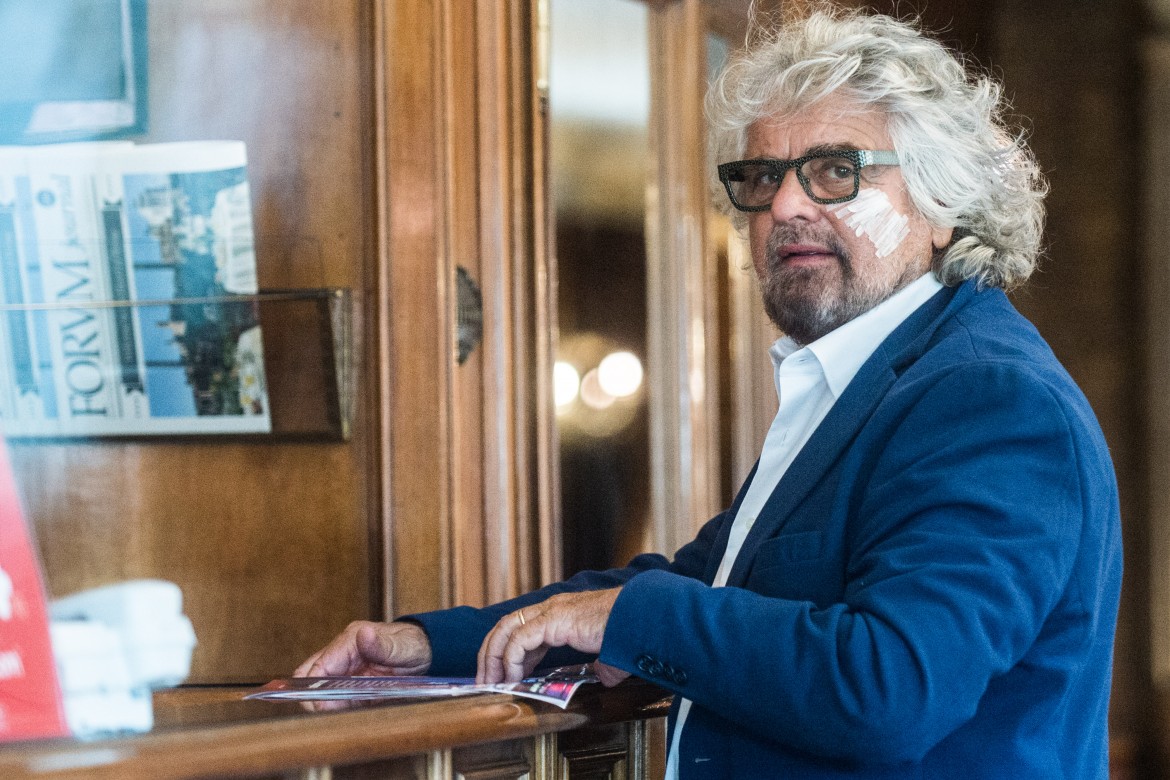Commentary
In a democracy, the debate is more important than the decision
The most damaging effect of the referendum is to have reinforced the (false) opposition between rulers and ruled, offering the latter the illusory opportunity to slap the former in the face.

Forty-eight hours after the victory of the “Yes” camp, the true interpretation of the referendum vote came to light, from Beppe Grillo himself. It was quite different from making Parliament smaller in order to revive it, as his more culturally aware companions advocated. Indeed, the exact opposite: “I no longer believe in a form of parliamentary representation; instead, I believe in direct democracy made by citizens through referendums.”
That a virulent anti-parliamentary charge was the driving force behind the “cutting” of the number of deputies and senators was, in fact, quite obvious. Only those who wilfully closed their eyes could not see it. The majority of that 69.6% who decided to get rid of a third of their representatives joined around an overwhelming patchwork of man-on-the-street-ism, anti-politics and populism. With the addition of a radical individualism, fueled by distrust—even worse: contempt—which, in the wake of repeated failures, now fights against any form of representative mediation.
The analysis of the vote confirms this fact. “No” held only where politics has retained the ability to enter into a dialogue with citizens: in the most affluent areas of large cities. “Yes” blanketed the areas in distress: the urban peripheries, the countryside, inland areas, the South. These are the economically and socially depressed parts of the country, which most need politics and which politics is guilty of having abandoned. Or, at most, exploited, fomenting resentment and fears.
This is the most damaging effect of the referendum: to have reinforced the (false) opposition between rulers and ruled, offering the latter the illusory opportunity to slap the former in the face for once.
“We can do everything with digital voting. I went once again to vote with a pencil, inside a booth… These are things that I find no longer conceivable. We have launched Rousseau, which is interesting. A platform where a citizen can have a say, advise, vote at all levels, propose a law. Today, this can be done. One referendum a week is doable,” Grillo added.
He skirted over the fact that the Rousseau site, through which decisions are made by the M5S, is not managed by the latter, but by the Rousseau Association of Davide Casaleggio. He skirted over the opacity of the modalities of registration to the site itself and the management of the lists of members and those entitled to vote. He skirted over the fines imposed on the site by the Privacy Guarantor in 2018 (for unlawful processing of personal data) and in 2019 (for insufficient protection of members’ data during an online vote). He skirted over the potential conflicts of interest between the Rousseau Association and the consulting firm Casaleggio Associati, also owned by Davide Casaleggio.
Most of all, he skirted over the embarrassingly low rate of digital participation in votes: just 176,402 members of the Rousseau website, with the highest participation in a vote being 79,634 people, when we’re talking about a political force that had collected over 16 million votes in 2013.
The point, however, is not that the “continuous democracy” to which Grillo is alluding (for its definition, in a critical sense, see Stefano Rodotà) would actually be impractical. The point is that it is conceptually mistaken. Norberto Bobbio says this clearly when he writes that “nothing kills democracy more than the excess of democracy.” We live in plural societies, which must find a way to keep together differences that are not infrequently in conflict. Putting the people through a continuous decision-making process fuels social conflicts and rifts that risk dissolving political unity into fratricidal plurality.
For almost 30 years, we have lived under the illusion that we can ignore pluralism, altering representativity by introducing electoral systems that give parliamentary strength to those who do not have the corresponding political strength. Instead of seeking confrontation with the political adversary, we yearn for them to be overpowered by force. Debating issues seems useless to us, the only thing that matters is deciding: this is the logic of majoritarian democracy. A logic that fits perfectly with the direct democracy prefigured by Grillo—what matters is only that “Yes” beats “No”—and that makes the M5S not any sort of break with, but rather the most complete realization of the spirit of our times.
Reflecting on democracy, Hans Kelsen emphasized the prevalence of the deliberative moment—that is, the debate—over the decisional one. Democracy is, above all, discussion. Not mere choice. More than the result, the process matters. A decision is, ideally, a resource to be used as a last resort, when any other solution aimed at creating consensus is no longer feasible. Only in this way can parliamentary decisions not appear to be imposed by the majority on the minority.
Only in this way can the representatives really represent the nation, rather than partisan interests. And, most importantly, only in this way can the ideal that animates direct democracy truly be realized: reducing the distance between the rulers and ruled.
Originally published at https://ilmanifesto.it/se-in-democrazia-la-sola-cosa-che-conta-e-decidere/ on 2020-09-25
